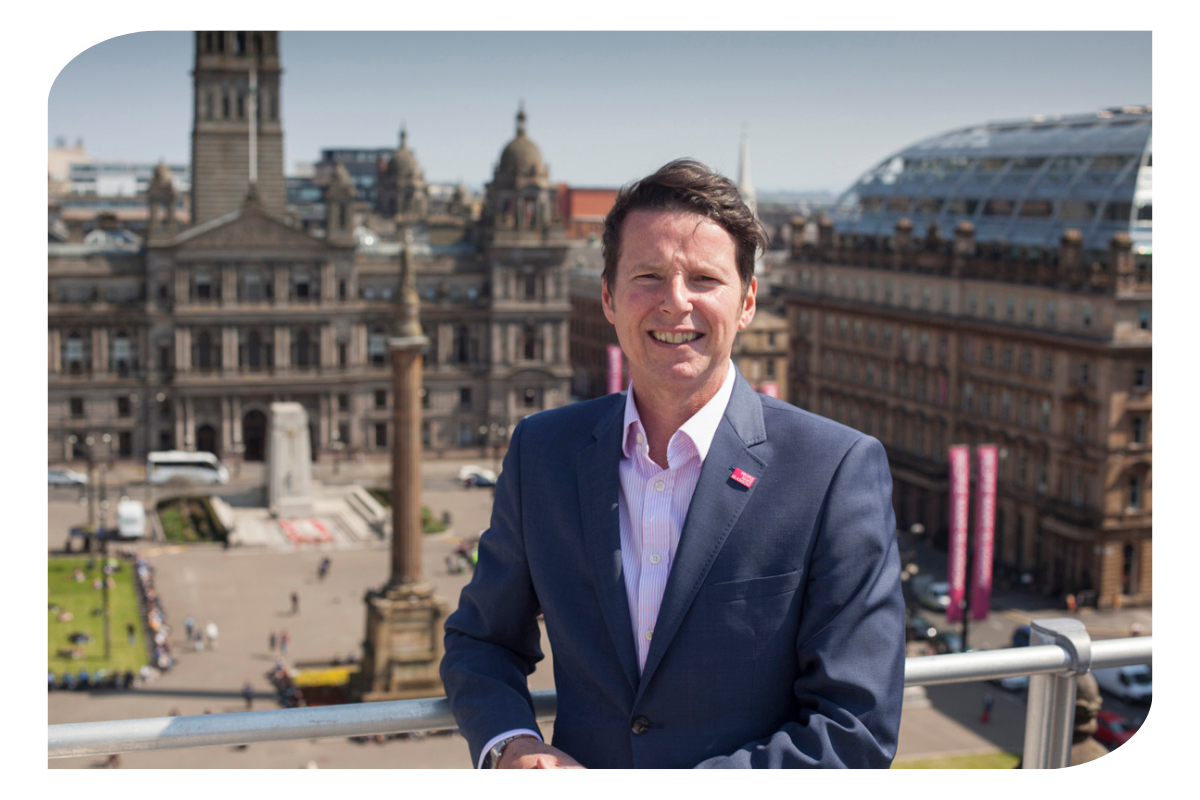
10 Mar 2020
By Richard Muir, Deputy Chief Executive, Glasgow Chamber of Commerce
The year 2020 is a big one for Glasgow and not only because the game-changer COP26 conference will bring a global audience to the city.
It’s yet another twelve months where we’re punching well above our weight on the international sporting front.
On the 60th anniversary of the European Football Championships, UEFA is providing a ‘Euro for Europe’ awarding 12 cities the opportunity to host matches, and Hampden Park will host four matches between June 15 and June 30.
While we all fervently hope Scotland makes it through the two play-off matches at the end of March, even without our own presence the Championships presents another significant economic opportunity – a further chance to demonstrate to the world that Glasgow is a vibrant, cosmopolitan metropolis which can deliver first class international sporting events.
You only have to look back to the inaugural European Championships in 2018 to see what sport can bring to the city in financial terms – of the £51.2m expenditure on commodities and services Glasgow benefited to the tune of £34.3m, with an estimated £8.5m in contracts awarded to Glasgow-based suppliers.
Undoubtedly sport adds huge value to the city’s economy, contributing £367m per annum and employing around 10,000 people.
At a recent event organised by Harper Macleod and Glasgow Chamber, Glasgow Life’s director of sport and events Billy Garrett spoke of the city’s global position as an ultimate Top Five World Sporting City and events destination.
Glasgow has used sporting and cultural events to shine on a world stage and the Glasgow Events Strategy will further establish the city’s credentials as an event ready city both in terms of infrastructure and the network of organisations and experts who deliver, fund, support and service events.
Hosting and delivering success is supported by a strong supply chain, wide ranging expertise, passionate citizens and a dedicated volunteer network. So we all have a part to play in the success.
As well as welcoming the UEFA Euro 2020 matches this year we’ll also be hosting the LGT World Men’s Curling Championships at the end of March and start of April, bringing 13 nations to the Emirates Arena.
Looking ahead we have Glasgow’s year as European Capital of Sport in 2023, for the second time. The city earned its earlier sport capital title in 2003 by demonstrating its commitment to supporting grassroots level sport as well as its ability to attract major sporting events – and that has grown many times over in the years since.
Our legacy includes the Commonwealth Games in 2014 hailed as the standout event in the history of the movement by Games Federation chief executive Mike Hooper, who praised “the way in which the people of Glasgow embraced the Games right from the get go.”
Since then we’ve been the venue for a succession of ultra-successful events, including the World Gymnastics Championships in 2015, the GB versus Australia semi-final of the Davis Cup, the European Championships in 2018 and the 2019 European Indoor Athletics Championships.
Already in the calendar looking forward to 2023 is our hosting of the UCI World Cycling Championships.
The economic impact of sporting and other major events is massive with millions of pounds of direct expenditure and a return on investment of £13 for the economy for every £1 spent by the city.
That’s why it’s incumbent on us all to work closely with such partners as the City Council, Glasgow Life and Glasgow Airport to welcome these massive sporting and other events and to convey the key messages to our businesses around initiatives such as Get Ready Glasgow, which has already kickstarted for Euro 2020.
First appeared in Glasgow Chamber’s weekly column in Herald Business.